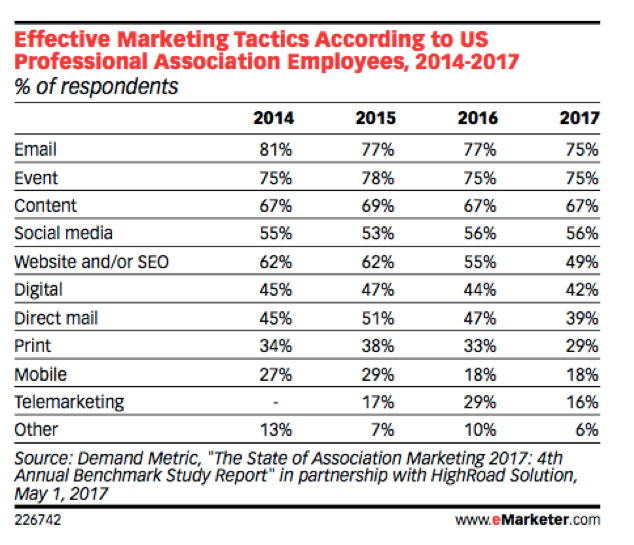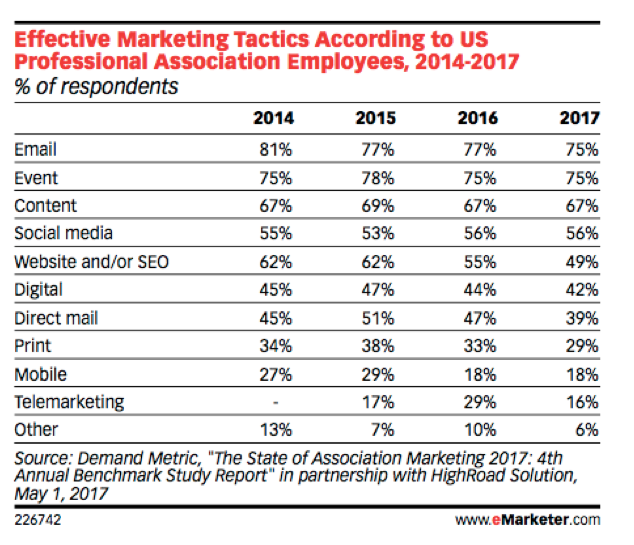When you’re inundated with the glories of digital marketing every day, we can start to forget that in-person events still make up such an important part of the marketing stack. Per the report, 85 percent of B2B marketers say events are either “critical” or “very important” for accelerating the sales pipeline and driving revenue. A recent study from eMarketer shows that a new events technology stack makes all those conferences and salons more effective than ever. The events team gathers opportunities from sales, slots them into a spreadsheet, and then salespeople try to influence prospects and close deals during the event. As a result, if business is going well, both sides may be content with the status quo instead of pushing to re-evaluate and improve. This all goes to show that events, despite being in-person, and should be tightly integrated into the rest of the marketing technology stack. As a result, CMI can get accurate views of who attended what and see which sessions were most popular—a gold mine of data for salespeople and the events team. Other companies use apps in a similar way to track attendee flow and gather information on attendees. But new technologies like wearable beacons should simplify tracking the attendee experience easier. The question for marketers is whether they can balance improving the attendee experience with asking for more data.
When you’re inundated with the glories of digital marketing every day, we can start to forget that in-person events still make up such an important part of the marketing stack. Events can be chaotic, complicated, and expensive. Yet in B2B marketing, there’s a reason they’re still incredibly popular.
According to a report from market research firm Demand Metric, events are second only to email when it comes to the most effective B2B marketing tactics.

Per the report, 85 percent of B2B marketers say events are either “critical” or “very important” for accelerating the sales pipeline and driving revenue. In total, events make up about a fifth of marketing spend at B2B companies, according to Forrester Research and Boston Consulting Group.
It makes sense that there is still plenty of confidence in event marketing. Talk to any salespeople and they’ll tell you about the significance of face-to-face sales opportunities. The B2B space cares just as much about relationships as it does hard numbers, and events are a critical way to foster them.
But that doesn’t mean B2B events aren’t affected by the digital revolution. A recent study from eMarketer shows that a new events technology stack makes all those conferences and salons more effective than ever.
Data and ROI
It’s not uncommon for event marketers to be siloed from the rest of the marketing department. The events team gathers opportunities from sales, slots them into a spreadsheet, and then salespeople try to influence prospects and close deals during the event.
That process leads to a lot of informality. The events team can take credit for any closed opportunity that attended a conference, while salespeople are just happy to have made commission. As a result, if business is…

COMMENTS